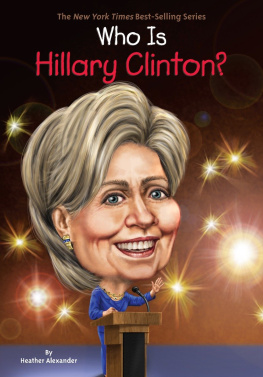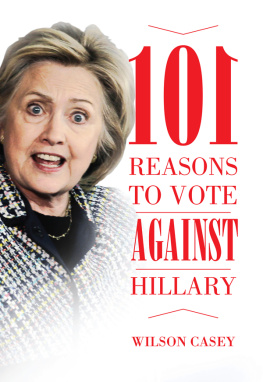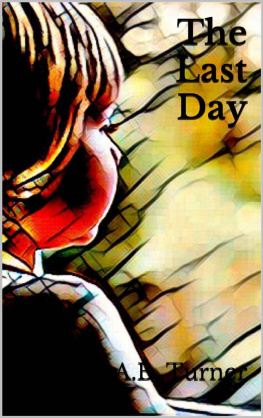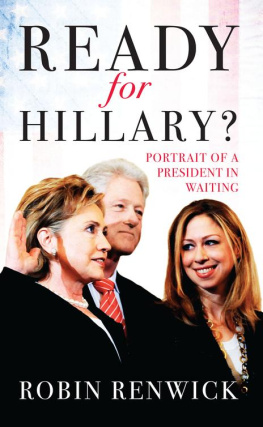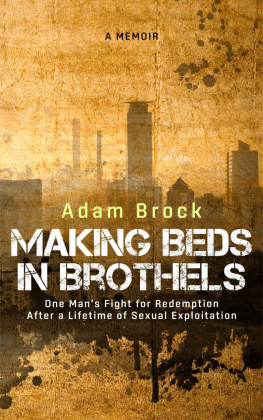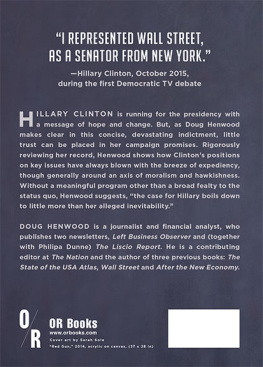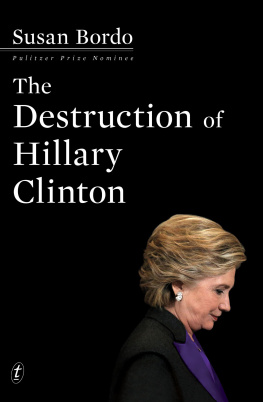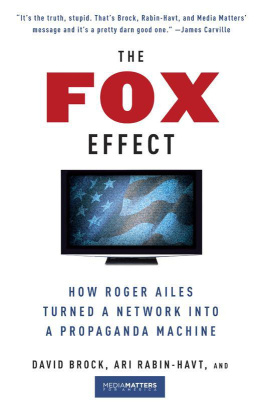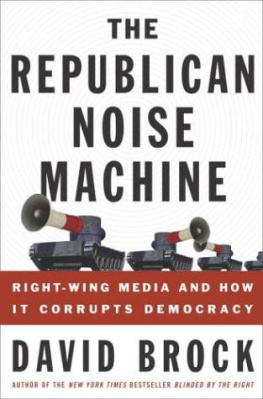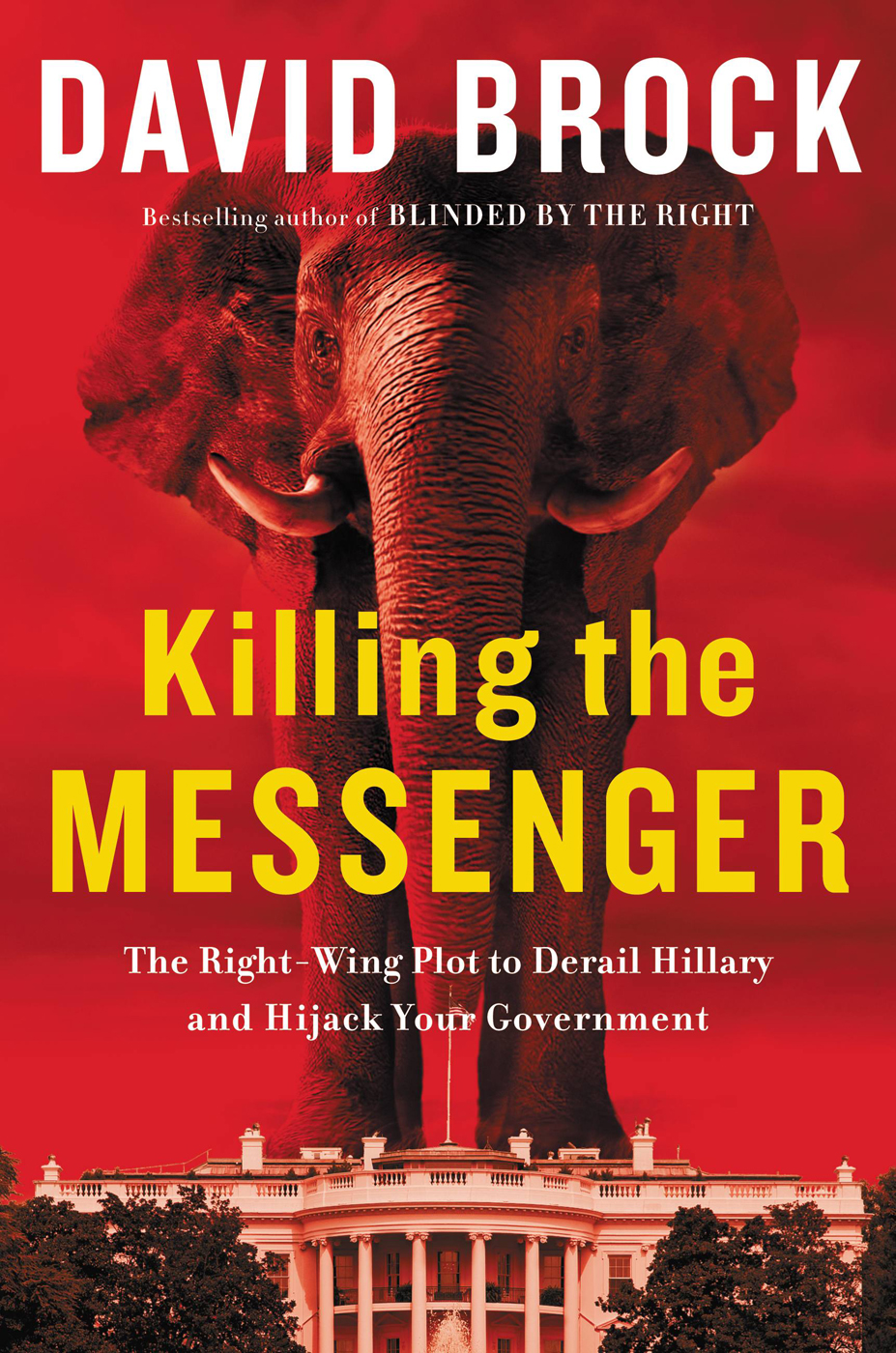To my colleagues and staff at Media Matters, American Bridge, Correct the Record, and the Franklin Forum
T he bar at the Capital Hotel serves Moscow Mules in copper mugs to the power brokers who run Little Rock. Set a block from the banks of the Arkansas River, its where lobbyists, legislators, and miscellaneous political operatives have gathered for decades to talk shop and hatch plots.
Rules, the hotel bars website asserts, are made at the Statehouse; laws are made at the Capital Bar.
I spent a lot of time at that hotel bar as a young man in the 1990s. But I wasnt there to make laws. I was there to make trouble.
And now, fifteen years after Id last stepped foot in Arkansas, I was back to make amends.
If youd told the younger me that, a few blocks east of my old stomping grounds at the Capital Bar, there would someday stand the Clinton School of Public Service just up the street from the William Jefferson Clinton Presidential Library on President Clinton Avenue I would have had a stroke.
And if youd told me that Id someday find myself back in Little Rock to appear on stage at the Clinton School of Public Service as a guest speaker I would have had another.

When the United States won the Cold War, the right lost its raison dtreits organizing principle and its most effective argument for why conservative ideas should hold sway and Republican politicians should hold power. Ronald Reagan was exiting the stage, and the young ideologues who had enthusiastically followed him into the conservative movement were left scrambling to define a cohesive vision for the countrys future.
I was one of them. During my college years at the University of California, Berkeley, Id become a right-wing iconoclast, a crusading campus journalist bent on destroying what I saw to be a corrupt, politically correct liberal establishment. After graduation, I moved to Washington, where I joined a generation of young writers who gained prominence as the ideological (and, in many cases, biological) heirs to modern conservatism.
We inherited our predecessors clubby social connections, and, in many cases, their affectations (at twenty-five, I was known to stroll around the offices of the Washington Times, the crusading right-wing paper owned by cult leader Sun Myung Moon, with a pipe and even a walking stick).
But while we all adored Ronald Reagan, reviled communism, and believed liberal was a dirty word, we never really got around to articulating what, exactly, we were for.
Instead, we found agreement on what we were against. Or, rather, who. Absent a clear ideological end, the demonization of our opponents became an end unto itself. The politics of personal destruction wasnt only something we did to further the conservative movementit became the conservative movement.
I wasnt just a practitioner of this new kind of politics; I was a pioneer. In 1991, law professor Anita Hill accused Supreme Court nominee Clarence Thomas, her former boss, of sexual harassment. My fellow conservatives and I couldnt believe her. And, in fact, we made it our mission to discredit hernot just so that Thomas would be protected from what we saw as outrageously unfair and false allegations, but because we saw Hill as an avatar of the liberal effort to attack everything we stood for, whatever that was.
Thomas, of course, was narrowly confirmed. But we still had a job to do: burnishing his legacy. And I was assigned to do it. I wrote a twenty-two-thousand-word article for the March 1992 issue of the American Spectator entitled The Real Anita Hill, in which I attempted to take apart Hills story, characterizing her as part of a liberal conspiracy to frame our hero, now Justice Thomas.
It was a hit piece, full of explicit (and, often, unsubstantiated) details of Hills personal life, innuendo, and pure hearsayall capped with a flatly racist caricature of Hill on the cover. Smugly labeling her as a bit nutty and a bit slutty, I used every nugget I could dig up, every allegation I was passed by Republican operatives in the Bush administration and on Capitol Hill, and a healthy dose of imagination to smear Anita Hill.
The Spectator proudly published it as investigative journalism. I turned the piece into a lucrative best-selling book. Rush Limbaugh read from it on the air for three days straight. My career as a right-wing hitman was born.

But even as I was making a name for myself on the right, the conservative movement found itself facing down a problem it couldnt solve: a problem named Bill and Hillary Clinton.
As Governor Clinton campaigned for the presidency in 1992, it quickly became clear that we couldnt compete with his message of hope and optimism, much less his ambitious, positive agenda for the country.
(Later, I would learn that right-wing animus toward the Clintons began even farther back in Arkansas, based in resentment among the rear guard of Southern racists over then governor Clintons early embrace of civil rights and stoked by the nerve of his wife to build a career and a public persona of her own.)
All we had were scandals, real and invented, that we hoped would stop the country from taking a chance on a young, dynamic, progressive Baby Boomerand his ambitious, brilliant, accomplished wife.
It didnt work. The American people sent the Clintons to Washington. In a democracy like ours, that should have been the end of it. He won, we lost; better luck next time. But now that we were out of power in addition to being out of ideas, conservatives worried that it would be the end of


